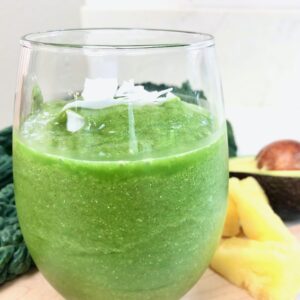Looking for gluten-free, gut-friendly staples to stock your pantry? Here are five great ones to start with! These are versatile, delicious, and ready to support your gut health. 1. Beans There are so many types of beans that you’re bound to find one you enjoy. As a staple in the gut-friendly pantry, beans are a…
All posts tagged gluten free
How to Choose a Quality, Gluten-Free Protein Powder
The protein powder aisle can seem to stretch for miles. The many claims and labels on containers can be mystifying and overwhelming. Although these products are not a necessary part of everyone’s diet, protein needs are higher in those with inflammatory conditions and gut damage. In my practice, I consistently find that people are struggling…
How to Fix a Nutrient Deficiency
Nutrient deficiencies are very common on a gluten-free diet regardless if you have celiac, gluten-sensitivity, or are gluten-free for another health reason. Depending on the vitamin or mineral and its specific roles, correcting a deficiency could support your… Digestive function Metabolism Thyroid Energy levels Bones Cognition and brain function Hormone production Immunity Tissue repair If…
15 Ways to Increase Fiber on a Gluten-Free Diet
Gluten-free diets are notoriously low in fiber. Many gluten-free products, especially packaged items such as crackers, breads, baked goods, and flours tend to be lower in fiber than their gluten-containing alternatives. Fiber feeds our gut microbes, who turn around to keep our gut lining healthy, balance our immune system, and decrease inflammation. Fiber also helps…
Tips for Low Iron Levels (plus a high-iron recipe)
Celiacs, especially when newly diagnosed, are very prone to nutrient deficiencies due to how gluten causes damage to the small intestine (where nutrient absorption SHOULD occur). Iron is one of the most common. In fact, unexplained iron deficiency anemia is a major sign of celiac disease and often a clue that helps people get screened…
Why to Test for Celiac BEFORE Going Gluten-Free
Maybe your digestion’s been on the rocks lately or you’ve been seeing signs of inflammation, such as joint pain or skin issues. One of the first pieces of advice that a quick Internet search will give you is to go gluten-free. But before you put the bread down, please get tested for celiac disease FIRST.…
Easy Turkey & Squash Chili
Cold months call for chili! This Turkey and Squash chili is super easy to pull together. The only chopping you have to do is a little celery and a winter squash, but you could probably use frozen, chopped butternut squash if you wanted to skip that step. Although I use ground turkey here, you could…
Salted Caramel Raspberry Yogurt Popsicles
Popsicles might just be one of the best things about summer. Cold, semi-portable, and satisfying to any sweet tooth. I usually go for pops with a slight creaminess rather than completely fruit-based ones, and I’ve found that yogurt (whether dairy-free or dairy-full) is a great way to make this happen without making the flavors and…
Pineapple Green Smoothie
Believe me when I say this is one of the most refreshing smoothies you’ll make this summer. The cucumber, coconut water, and pineapple make this oh-so-hydrating. And don’t worry, this isn’t a smoothie where you’ll be hungry 30 minutes later! That’s because it’s full of fiber (which your gut loves) as well as healthy fats…
Creamy, Dairy-Free, Cabbage Slaw
Do you like coleslaw but don’t feel super crazy about mayo or buttermilk? Or maybe you’re just looking for a slaw recipe that’s dairy-free and egg-free. If so, you’re in the right place! The sauce for this slaw is made with cashew butter, which gives a mild sweetness and makes it creamy… without dairy! It…










